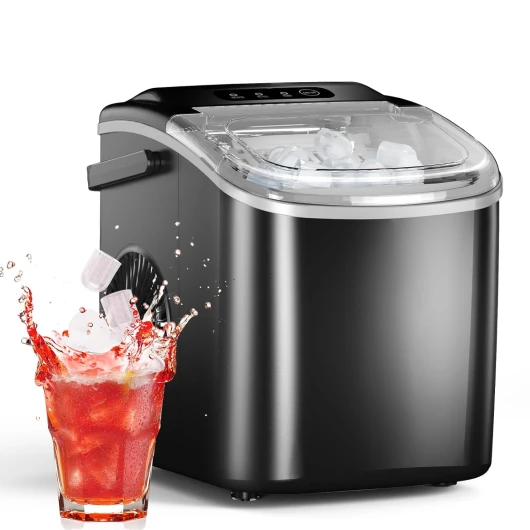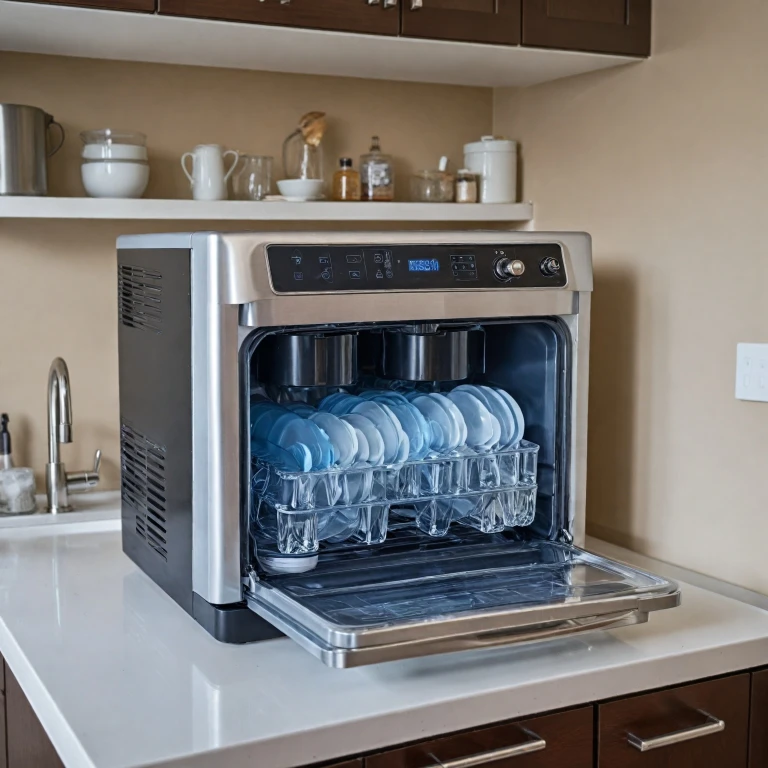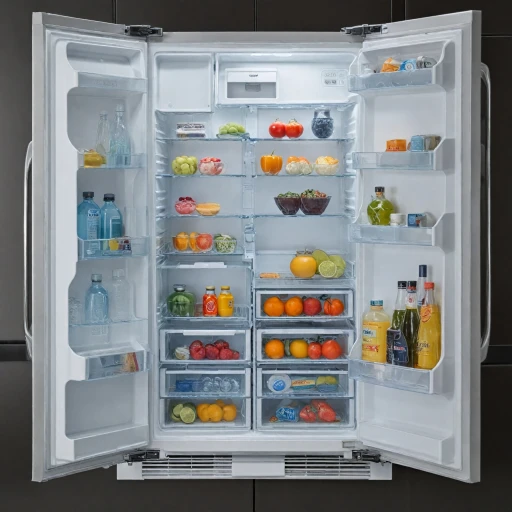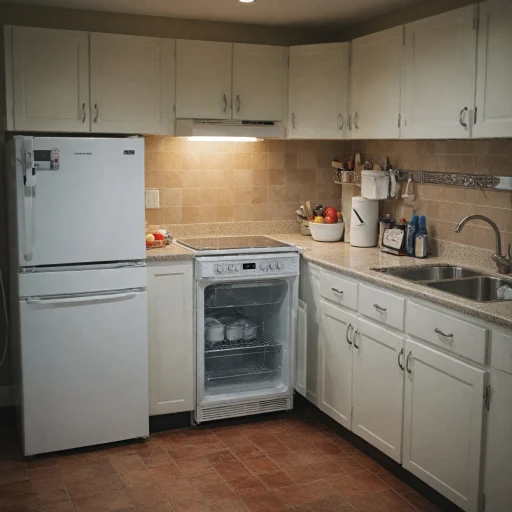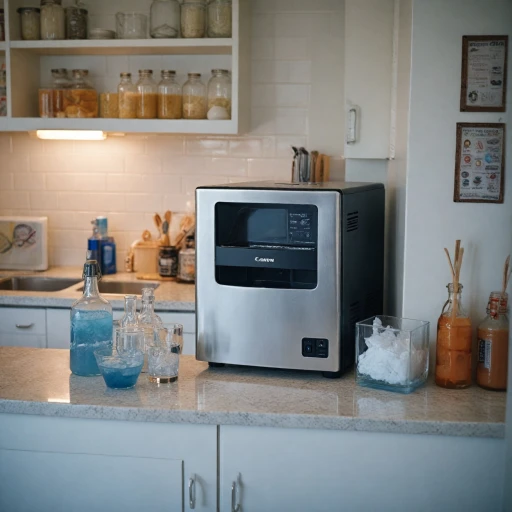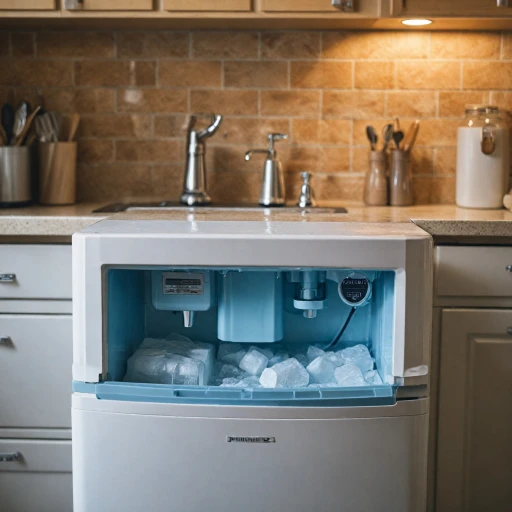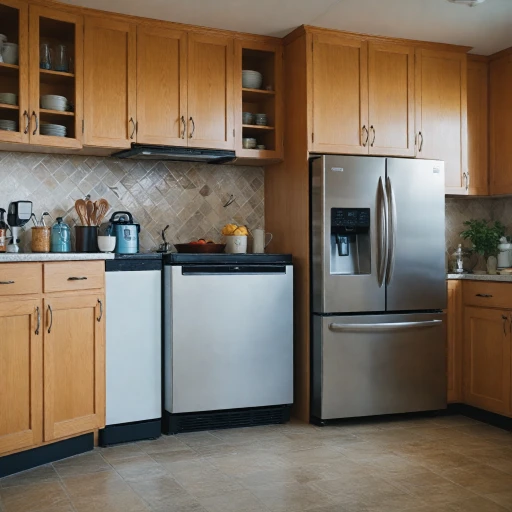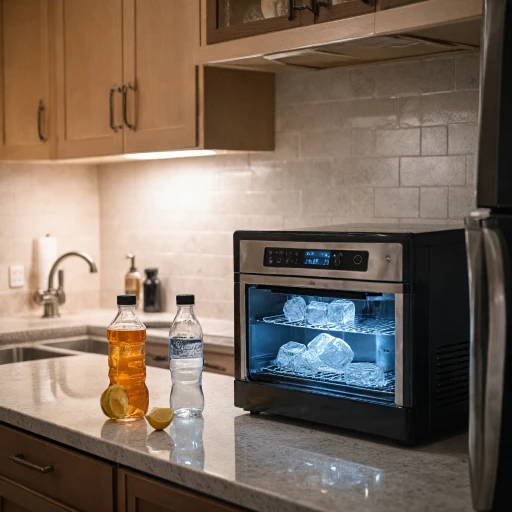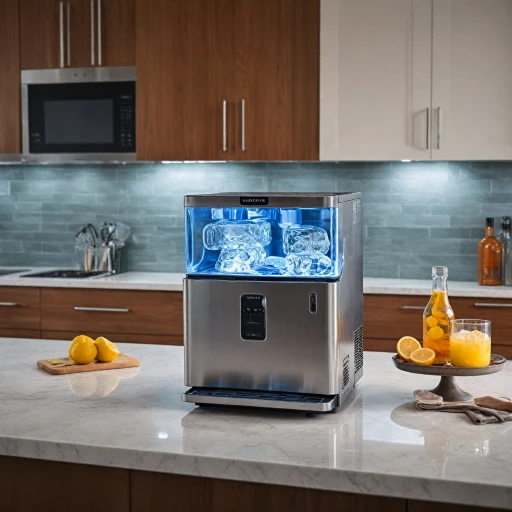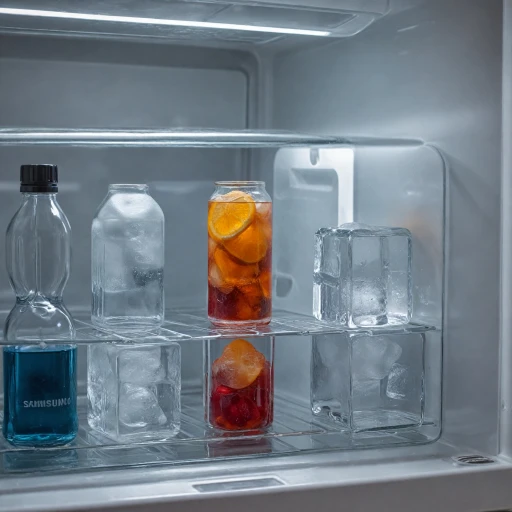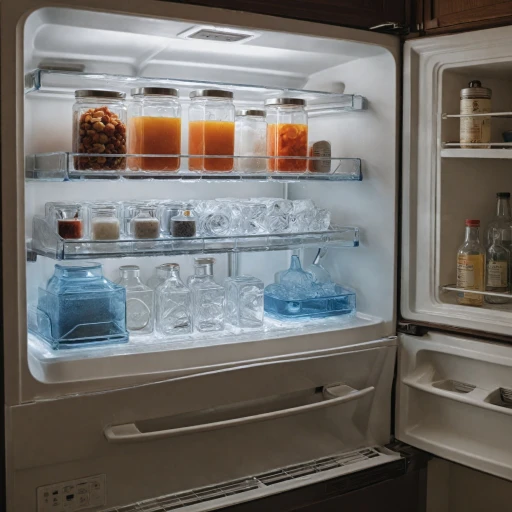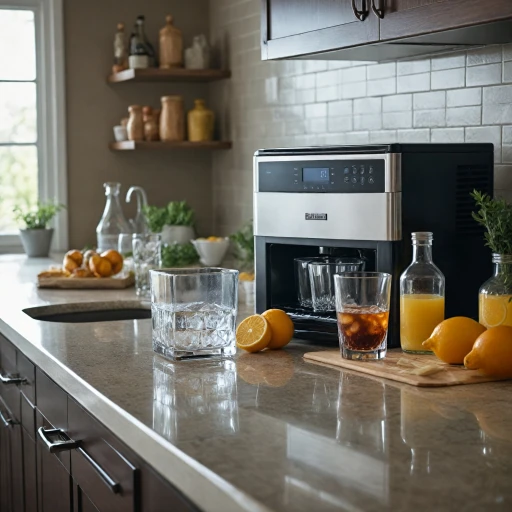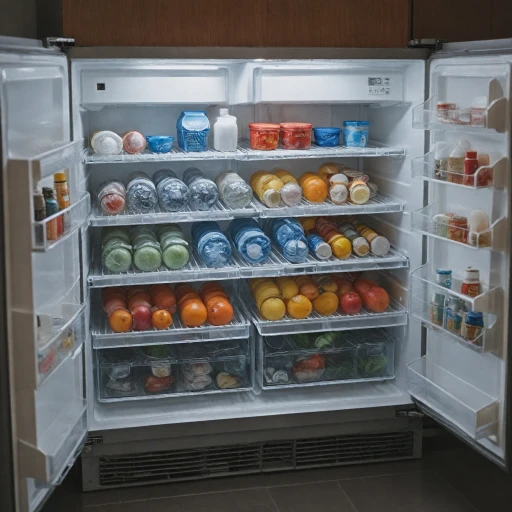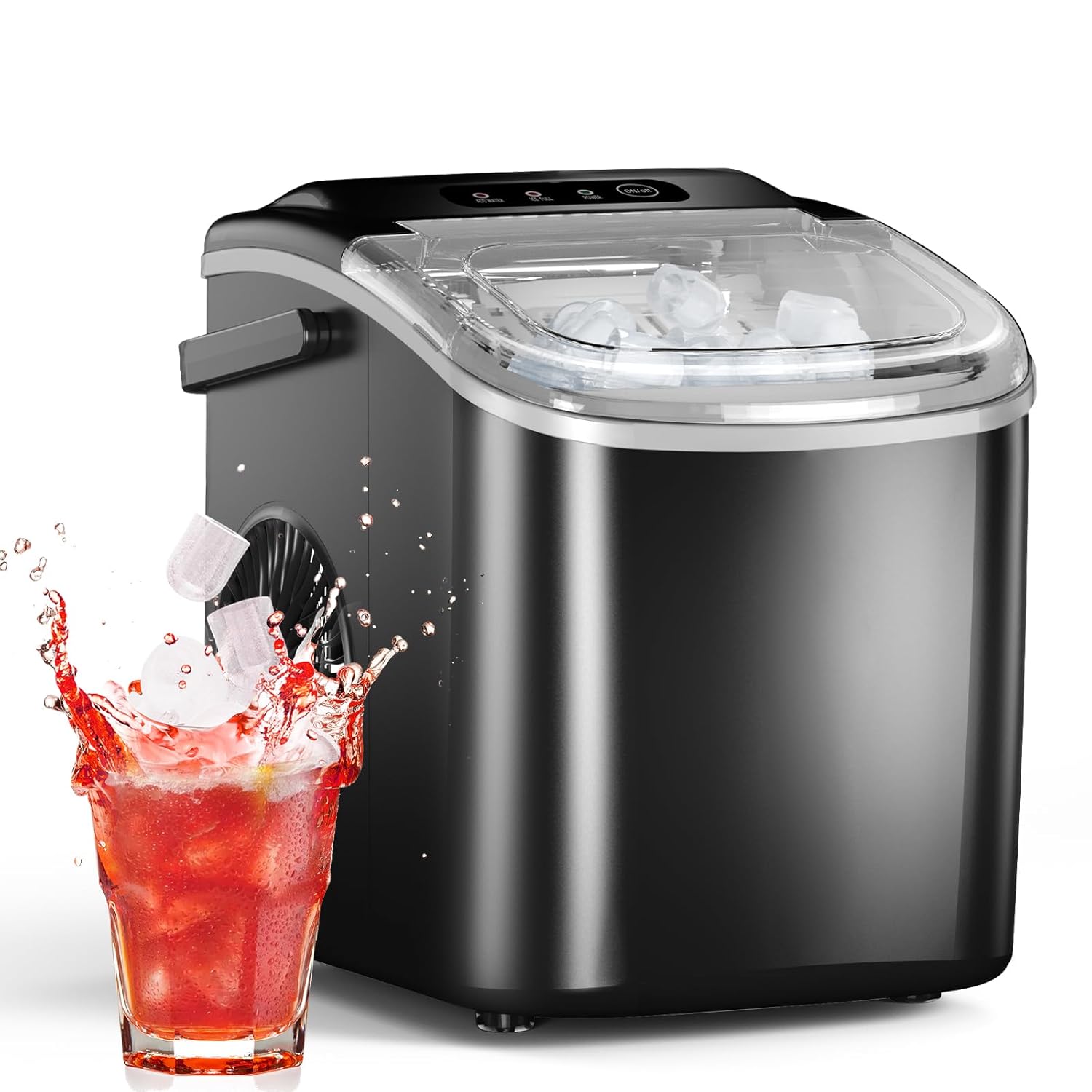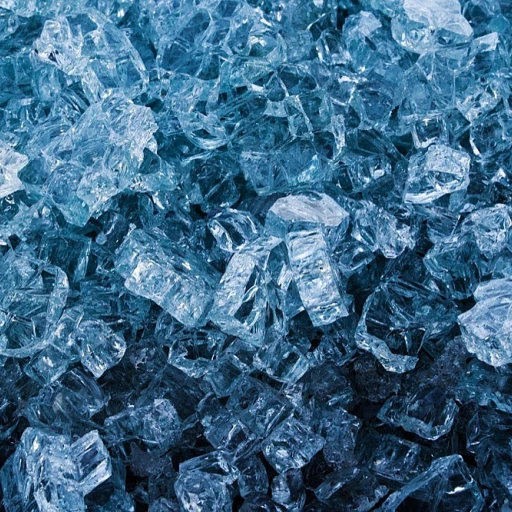
Understanding common reasons your Frigidaire ice machine stops working
Why Your Frigidaire Ice Maker Might Stop Making Ice
If your Frigidaire refrigerator ice maker suddenly stops working, you’re not alone. There are several common reasons why ice production can slow down or stop completely. Understanding these causes is the first step to getting your ice maker working again and avoiding unnecessary repair costs.
- Water Supply Issues: The water inlet valve supplies water to your ice maker. If there’s a problem with water pressure or the valve itself, your ice maker won’t fill properly. Sometimes, a clogged or old water filter can also restrict water flow, impacting ice production.
- Freezer Temperature Problems: Your freezer temperature needs to be cold enough for ice to form. If the temperature is set too high, or if the door doesn’t seal well, the ice bin may stay empty. Make sure your freezer is set to the recommended temperature for optimal ice making.
- Faulty Ice Maker Parts: Components like the control board, ice maker assembly, or water valve can fail over time. If any of these parts malfunction, your Frigidaire ice maker may stop making ice or produce smaller, misshapen cubes.
- Blocked or Frozen Water Lines: Sometimes, the water line leading to the ice maker can freeze or become blocked. This prevents water from reaching the ice tray, stopping ice production entirely.
- Door or Control Issues: If the refrigerator door isn’t closing properly, or if the main control board malfunctions, the ice maker may not receive the signal to start making ice. Always check the door seal and control settings if your ice maker isn’t working.
It’s important to check each of these potential issues before moving on to more complex repairs. If you’re interested in learning more about how drainage can affect your ice maker’s performance, you can read about the importance of an ice machine drain pump and how it relates to overall appliance health.
In the next sections, we’ll cover how to check your power and water supply, inspect the main components, and maintain your Frigidaire ice maker for reliable ice production.
How to check the power and water supply
Ensuring Reliable Power and Water Supply
When your Frigidaire ice maker stops making ice, one of the first things to check is whether it’s getting the power and water it needs. Even the best refrigerator ice makers can’t work without a steady supply of both. Here’s how you can quickly assess these essentials before moving on to more complex repairs.
- Power Connection: Make sure your refrigerator is plugged in and the outlet is working. Sometimes, a tripped circuit breaker or a loose plug can be the culprit. If the control board isn’t receiving power, the ice maker won’t operate at all.
- Water Supply Line: Inspect the water line connected to your Frigidaire refrigerator. Kinks, blockages, or leaks in the line can prevent water from reaching the ice maker. Also, check that the water valve behind the appliance is fully open.
- Water Inlet Valve: The water inlet valve is a key part that controls the flow of water into your ice maker. Low water pressure or a faulty valve can disrupt ice production. If you suspect an issue, you may want to learn more about the activation of fill tube heaters in icemakers to understand how water flows and freezes in your unit.
- Water Filter: A clogged or expired water filter can reduce water flow, affecting the ice bin’s ability to fill. Replace the filter as recommended by the manufacturer to keep your ice maker working efficiently.
- Freezer Temperature: The freezer should be set to the optimal temperature for ice production, typically around 0°F (-18°C). If it’s too warm, the ice maker may not work properly.
By checking these basic elements, you can often resolve issues with your Frigidaire ice maker not making ice. If everything seems in order but your appliance still isn’t working, it may be time to inspect the internal parts or consider a professional repair.
Inspecting the ice maker components for faults
Key Ice Maker Parts to Inspect
When your Frigidaire ice maker stops making ice, a careful inspection of its main components can reveal the source of the problem. Here’s what to check:- Water Inlet Valve: This valve controls the flow of water into the ice maker. If it’s clogged or malfunctioning, your refrigerator ice maker won’t get enough water for ice production. Make sure the valve is not blocked and that water pressure is adequate.
- Water Filter: A clogged water filter can restrict water flow, leading to poor ice production. Replace the filter if it’s overdue or if water flow seems weak.
- Ice Maker Assembly: Inspect the ice maker unit for any visible damage or ice jams. Sometimes, ice can get stuck in the ice bin or the maker itself, preventing new ice from forming.
- Control Board: The main control board or the ice maker’s own control board manages the ice-making cycle. If the board is faulty, the appliance may not signal the ice maker to start working. Look for error codes on your Frigidaire refrigerator’s display panel.
- Door Switch: If the refrigerator door isn’t closing properly or the door switch is defective, the ice maker may not operate. The switch tells the appliance when the door is open or closed, affecting ice production.
- Freezer Temperature: The freezer temperature should be set between 0°F and 5°F for optimal ice making. If it’s too warm, the ice maker may not work efficiently.
Testing and Troubleshooting Steps
- Check the water pressure at the inlet valve. Low pressure can prevent the valve from opening.
- Examine the water line for kinks or blockages.
- Remove the ice bin and look for clumped or stuck ice.
- Test the door switch by pressing it manually. If the refrigerator light doesn’t turn off, the switch may need repair.
- Inspect the control board for visible signs of damage or burnt components.
Resetting your Frigidaire ice machine
Steps to Reset Your Frigidaire Ice Maker
If your Frigidaire refrigerator ice maker is not making ice, a reset can often help restore normal operation. Resetting helps clear minor glitches in the main control board or other electronic parts that might be affecting ice production. Here’s how to safely reset your ice maker and what to check during the process:
- Locate the ice maker reset button: Most Frigidaire ice makers have a reset button on the ice maker assembly inside the freezer. If you’re unsure, consult your appliance manual for the exact location.
- Press and hold the reset button: Hold the button for about 5 seconds until you hear a chime or the ice maker starts to move. This signals that the control board is resetting.
- Wait for the cycle to complete: The ice maker will usually run a short test cycle. Listen for movement or water entering the ice tray. If the water inlet valve is working and water pressure is adequate, you should see water fill the tray.
- Check the ice bin: After resetting, monitor the ice bin for new ice production. If ice is being made, your reset was successful.
If your Frigidaire ice maker is still not working after a reset, double-check the water supply, water filter, and freezer temperature. Sometimes, a clogged water filter or low water pressure can prevent the ice maker from making ice even after a reset. Also, ensure the refrigerator door is closing properly, as an open door can interrupt the ice maker’s cycle.
For persistent issues, it may be necessary to inspect other parts like the water inlet valve, control board, or other internal components. If you’re not comfortable with appliance repair, consider contacting a professional for further diagnosis and repair.
Cleaning and maintaining your ice machine for better performance
Why Regular Cleaning Matters for Ice Production
Keeping your Frigidaire ice maker clean is essential for consistent ice production and to avoid issues like odd-tasting ice or slow operation. Over time, mineral deposits from water, food particles, and even mold can build up in your refrigerator ice maker, water inlet valve, and ice bin. These contaminants can block the water flow, affect the temperature, and reduce the efficiency of your appliance.
Steps to Clean Your Frigidaire Ice Maker
- Unplug the refrigerator: Always disconnect power before cleaning any parts to ensure safety.
- Remove the ice bin: Take out the ice bin and discard any old or clumped ice. Wash the bin with warm, soapy water and let it dry completely before reinstalling.
- Clean the ice maker parts: Wipe down the ice maker, including the ice mold and surrounding areas, with a soft cloth dampened with a mixture of water and mild dish soap. Avoid harsh chemicals that could damage the appliance.
- Check the water filter: A clogged water filter can reduce water pressure and ice production. Replace the filter according to your refrigerator’s manual, usually every six months.
- Inspect the water inlet valve: Mineral buildup in the water valve can restrict water flow. If you notice reduced ice output, check the valve for debris and clean it if necessary.
- Wipe the freezer interior: Clean the freezer walls and door seals to prevent mold and maintain optimal freezer temperature for ice making.
Maintenance Tips for Better Performance
- Keep the freezer temperature at the recommended setting (usually 0°F or -18°C) to ensure the ice maker works efficiently.
- Regularly check the control board and other electrical parts for signs of wear or damage.
- Don’t overload the freezer or block the air vents, as this can affect the temperature and ice production.
- Make sure the refrigerator door seals tightly to prevent warm air from entering and affecting ice maker performance.
By following these cleaning and maintenance steps, you can help keep your Frigidaire refrigerator ice maker working smoothly, reduce the need for repair, and enjoy fresh, clear ice every time. If your ice maker is still not making ice after cleaning and checking the main control board, water valve, and other parts, it may be time to consider professional appliance repair.
When to call a professional for your Frigidaire ice machine
Recognizing When Expert Help Is Needed
If you’ve already checked your Frigidaire ice maker’s power, water supply, and main components, but your refrigerator ice production is still not working as it should, it might be time to call a professional. Some issues go beyond basic troubleshooting and require specialized tools or technical knowledge.- Electrical or Control Board Problems: If your ice maker or refrigerator isn’t responding, or if the control board shows error codes, a certified appliance repair technician should check the main control board and related parts. Attempting repairs on these components without expertise can risk further damage.
- Water Inlet Valve or Water Pressure Issues: If water isn’t reaching the ice maker, even after checking the water filter and water line, the water inlet valve or water pressure might be at fault. Diagnosing and replacing a faulty valve or addressing low water pressure often requires professional tools and experience.
- Persistent Freezer Temperature Fluctuations: If your freezer temperature won’t stay cold enough for proper ice production, or if the ice bin isn’t filling, a technician can check for deeper issues with the refrigerator’s cooling system.
- Complex Mechanical Faults: Problems with the ice maker’s internal gears, sensors, or wiring are best left to professionals. These parts are not always easily accessible and may require disassembly of the refrigerator or freezer door.
-logo-retina.png)
